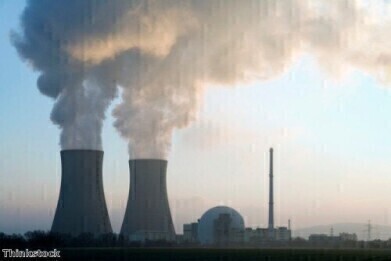Fuel for Thought
Carbon Emissions Must Halve by 2030 to Stay Below 1.5C, says New IPCC Report
Mar 20 2023
In the Intergovernmental Panel on Climate Change’s (IPCC) latest report, it called for urgent and widespread action to be taken to tackle climate change, warning that time is running out to secure a sustainable and liveable future. UN Secretary-General Antonio Guterres described the report as a ‘survival guide for humanity,’ and urged that the world should defuse the ‘climate timebomb’ by taking action. It urges policymakers, investors, and businesses to work together to accelerate the decarbonisation of the global economy, even as it recognises that progress in reducing greenhouse gas emissions remains far too slow despite a raft of readily-available climate solutions.
What does the new IPCC report say?
The scientists warn that the sluggish embrace of proven low carbon technologies and business models over the past decade means steeper emissions cuts will be required than previously anticipated to avert a future dominated by potentially catastrophic heatwaves, droughts, floods, and tropical cyclones. The report highlights that global temperatures have risen to 1.1C above pre-industrial levels after more than a century of burning fossil fuels and current policies are expected to lead to global warming of 2.8C by 2100, which is expected to massively overshoot both the 1.5C warming goal and the 'well below' 2C limit agreed upon by governments under the 2015 Paris Agreement.
The IPCC warns that ecosystems are already being subjected to irreversible damage and human civilization is already facing unprecedented temperatures, which will escalate with every increment of warming. More frequent and intense weather events are already evident today in every region and will hit vulnerable communities and ecosystems hardest.
The report stresses that all sectors of the economy must undergo "rapid and far-reaching transitions" that involve deep reductions in carbon dioxide, methane, and other greenhouse gas emissions. To meet the target of limiting global warming to 1.5°C above pre-industrial levels, greenhouse gas emissions should already be decreasing. The UN determines that reductions of 43 per cent must be made by 2030 and 60 per cent by 2035, if we are to be kept under the critical 1.5C limit. However, carbon dioxide (CO2) emissions—the primary greenhouse gas emitted by human activity and industry—rose 0.9% globally in 2022.
To accelerate decarbonisation efforts and enhance citizens' resilience to climate impacts, the report highlights the need for the adoption of low-carbon technologies, shifting patterns of consumption and demand, socio-cultural behavioural changes, enhancements to technological efficiency, and a major boost to nature and conservation efforts. The report repeatedly emphasises that these solutions are not only available, and are in many cases rapidly falling in cost, but can also unlock multiple benefits to society, such as improved public health, enhanced human wellbeing, and the opening up of new employment opportunities.
The IPCC also warns that to prove effective and gain social acceptance, low carbon and climate resilient development must be informed by diverse values, scientific information, and input from local and indigenous communities. The report urges stakeholders to share technologies, know-how, and policy best practices and notes that finance, technology, and international cooperation are identified as the key levers that must be pulled to fast-track climate action and ensure development is climate-resilient and aligned with sustainable development goals.
What are the consequences of exceeding 1.5C?
The report notes that any "overshoot" of the 1.5C limit will have irreversible adverse impacts on some ecosystems, such as polar, mountain, and coastal habitats. The larger the overshoot, the more carbon removal technologies and projects would need to be deployed to return to 1.5C by 2100, it stated. The IPCC warns that emissions from existing fossil fuel infrastructure will exceed what is left of the global carbon budget for 1.5C of warming by 2030, reiterating warnings that the opening up of more fossil fuel reserves risked breaching the goals of the Paris Agreement.
The release of the IPCC report means diplomats and world leaders can expect to face ever more intense calls for governments to deliver a bolder international agreement to fully phase out unabated fossil fuel use and drastically increase investment in clean technologies and climate resilience measures, especially in climate vulnerable and developing economies
Ultimately, the IPCC's latest report calls for urgent action to accelerate decarbonization efforts across the global economy, highlighting the need for "mainstreaming" climate action and preparing societies for increasingly dangerous climate impacts. The report warns that progress remains far too slow, and steeper emissions cuts will be required than previously anticipated to avoid potentially catastrophic heatwaves, droughts, floods, and tropical cyclones.
It is clear that accelerating climate action will only be possible with a many-fold increase in finance, and governments, investors, central banks, and financial regulators all have a role to play in tackling barriers to climate investment. The report stresses the need for diversified values, scientific information, and input from local and indigenous communities to ensure that low-carbon and climate-resilient development gains social acceptance.
The IPCC's latest report underscores the urgency of taking more ambitious action to mitigate climate change and shows that if we act now, we can still secure a liveable, sustainable future for all. As the Secretary-General noted, the world's top climate scientists have provided humanity with a ‘survival guide’, all we have to do is follow it.
Digital Edition
PIN 25.3 June/July
June 2024
Analytical Instrumentation - Recent Advances In Various Bench Scale Accelerated Oxidative Testing Methods For Fuels - Petrochemical Industry: Anton Paar Solutions Streamline Processes, Reduce H...
View all digital editions
Events
Jul 30 2024 Jakarta, Indonesia
Jul 30 2024 Jakarta, Indonesia
China Energy Summit & Exhibition
Jul 31 2024 Beijing, China
Jul 31 2024 Chengdu, China
Aug 05 2024 Moon Township, PA, USA


















